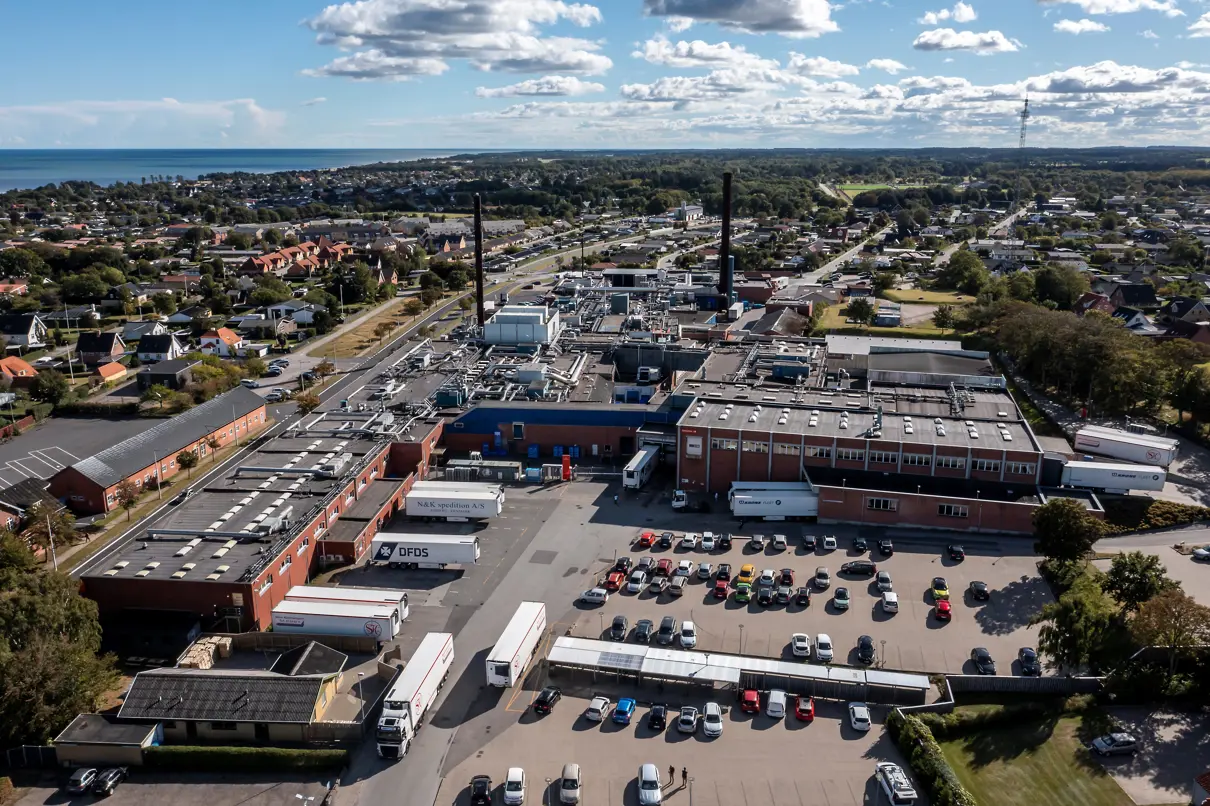At an extraordinary meeting on Wednesday evening, Danish Crown’s Board of Directors took the difficult decision to propose that the abattoir in Sæby be closed. The number of pigs supplied for slaughter in Denmark on a weekly basis has declined by more than 10 per cent over the past year, and Danish Crown therefore has the capacity to slaughter many more pigs than are supplied each week to the group’s abattoirs. Therefore, the Board of Directors unfortunately sees no other option than to propose that one of the group’s six pig abattoirs in Denmark be closed.
“It is very sad that we have to say goodbye to so many skilled and loyal employees, but we are forced to react to such a marked decrease in the amount of slaughtering’s. Now, our surplus capacity is costing us more than DKK 300 million a year, and it would be irresponsible in relation to the company and our owners if we didn’t take the steps which are necessary to address this challenge,” says Per Laursen, VP Production, Danish Crown.
Too few pigs being sent for slaughter
Even though pork prices in supermarkets have increased over the past year, inflation has made it difficult for many Danish farmers to generate enough earnings from their production of pigs for slaughter. As a result, many of them have decided to close their livestock operations. Others are now selling their pigs for export as soon as they weigh approx. 30 kg, because there is such a high demand for weaners from Poland and Germany that it generates good earnings for the farmers. All in all, it means that the number of pigs being sent for slaughter in Denmark has decreased significantly.
To reverse this development, and to protect jobs at its five other abattoirs in Denmark, Danish Crown needs to increase the settlement price paid to the cooperative owners for their supplies of pigs so that it matches the level paid in Germany and ensures that farmers can make money from fattening pigs for slaughter.
“What is so frustrating about this situation is that our employees’ performance has been exemplary, but in our industry, it is imperative that the abattoirs are run with very high-capacity utilisation, because otherwise it simply becomes too expensive to slaughter every single pig. But it’s a heavy decision for us all,” says Per Laursen.
While 800 employees face losing their jobs in Sæby, Danish Crown expects it will need to take on 450 new employees at its abattoirs in Horsens, in Ringsted and in Blans near Sønderborg within the next six months. This is because much of the production that currently takes place in Sæby will need to transfer to Danish Crown’s other abattoirs in future.
“After several years of growth driven by strong exports to China, we knew there was a risk that the production of pigs for slaughter might fall, so the decision to propose the closure of the abattoir in Sæby is based on a careful and in-depth analysis of the situation. However, our Feeding the Future strategy is unchanged, because our future growth is not only going to come from slaughtering more pigs, but from increasing the value of our meat and the production of attractive and more sustainable foods,” says Jais Valeur, Group CEO, Danish Crown.
Employees to be given a helping hand
Danish Crown is hoping that some of the employees from the abattoir in Sæby will accept jobs at one of the three abattoirs which are now going to take on more employees. Therefore, Danish Crown is ready to cover some of their travel costs for a period or to subsidise employees moving to a new home.
In addition, the company will, through coordinated efforts, seek to help those employees who face losing their jobs. Every one of the affected employees will be invited to an interview to talk about the possibility of being employed at one of Danish Crown’s other sites. Alternatively, employees will be offered various options in the form of courses and training paid for by Danish Crown which can help them find other employment.
“Many of our employees will be left feeling that the rug has been pulled from under their working life. Therefore, today we are contacting the trade union NNF (which represents skilled and unskilled employees within the slaughtering and meat industry, among others), the Municipality of Frederikshavn and the North Denmark Region so that together we can do as much as possible to help them. Abattoir workers fortunately have a reputation for being stable and reliable workers, and after the dismissals in Sæby six months ago, almost 60 per cent of our former employees have found new work, but it doesn’t happen automatically,” says Per Laursen.
The employees at the abattoir in Sæby were summoned to a meeting on Thursday morning and informed of the Board of Directors’ decision
